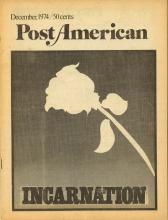This is the third of three essays on the “Christian radicalism” of early
It was under the presidency of evangelist Charles G. Finney that forces converged to force Oberlin in the direction of a more “revolutionary” stance. Oberlin’s anti-slavery convictions had pushed the colony toward identification with radical Republicanism, a political philosophy that put them at odds with the surrounding Democratic establishment. Oberlin’s work with the “Underground Railroad” and opposition to the “Fugitive Slave Law of 1850” led to the development of a doctrine of “civil disobedience” defended by appeal to the divine or “higher law.” Oberlin began to debate the propriety of using force in opposing the fugitive slave laws. All of this climaxed in the “Oberlin-Wellington Rescue Case” that gained international notoriety for the “Oberlinism” already despised in this country.
Read the Full Article

